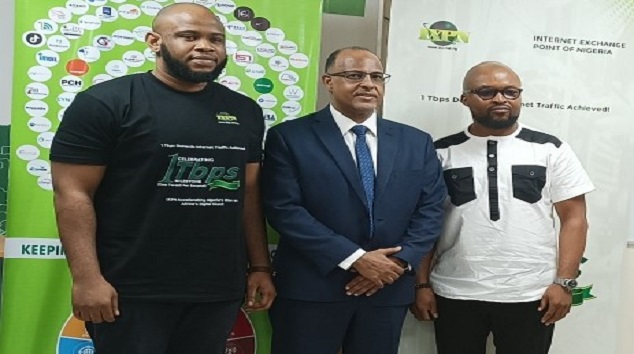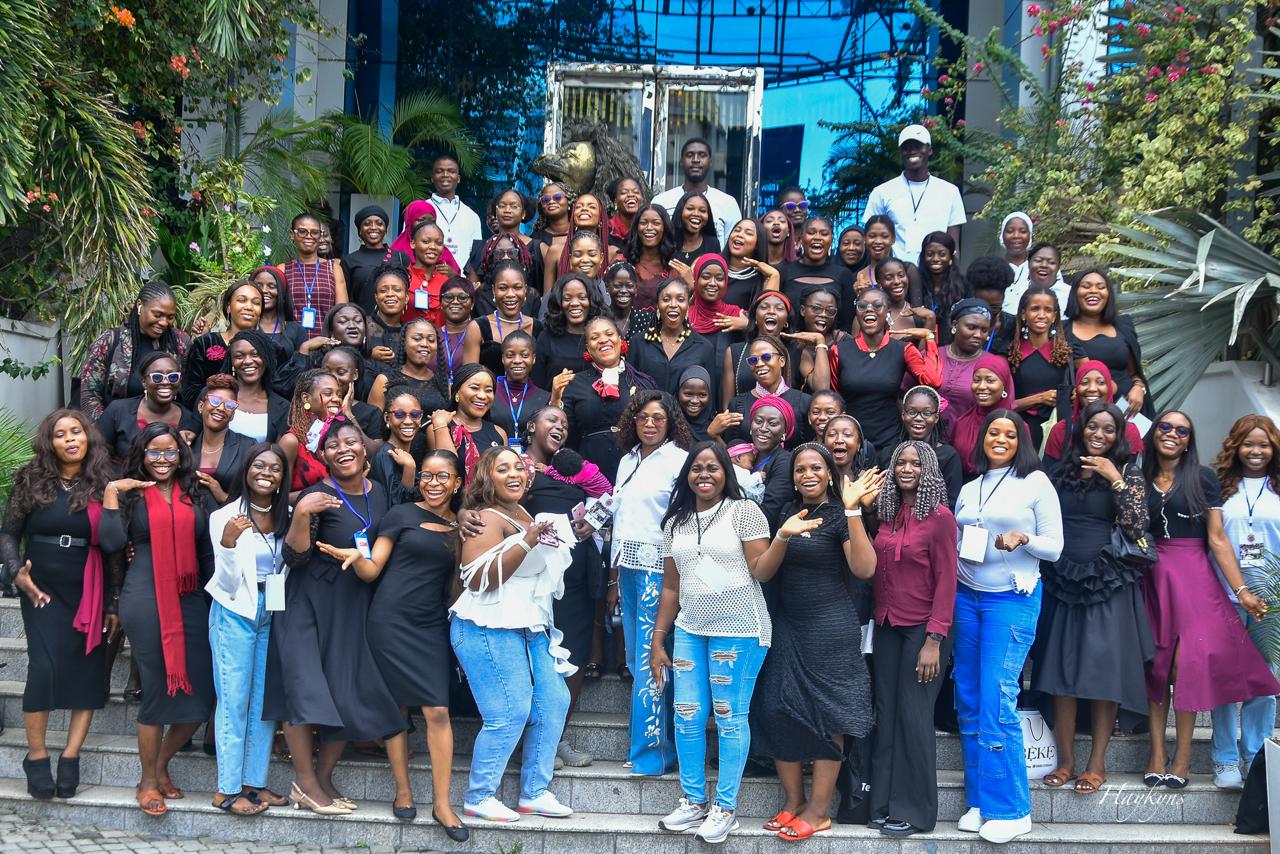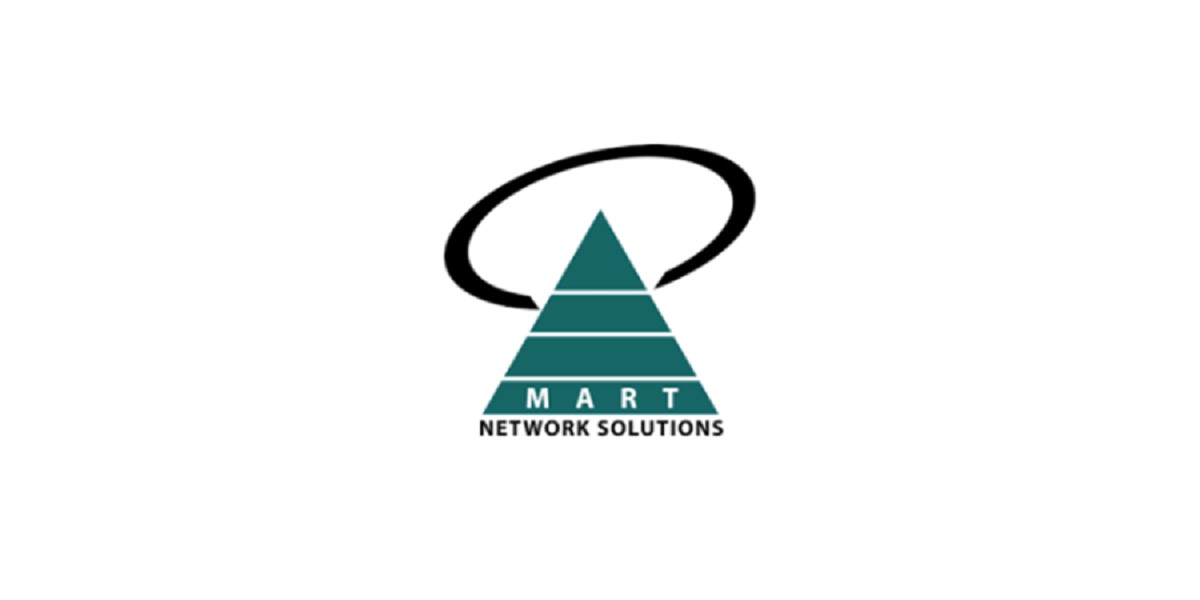Telecom
Mastercard, AfDB Partner to Accelerate Digital Transformation in Africa

Mastercard and the African Development Bank Group have launched the Mobilizing Access to the Digital Economy (MADE) Alliance: Africa to extend digital access to critical services to 100 million individuals and businesses in Africa over the next 10 years. The announcement was made on the sidelines of the U.S.-Africa Business Forum hosted by the U.S. Chamber of Commerce.

The Alliance will initially focus on supporting the agricultural sector and women. Among the first efforts will be a pilot program launching this year to support three million farmers in Kenya, Tanzania and Nigeria by working with local banks to provide digital identities and access to high-quality seeds and agricultural inputs. The Alliance intends to expand to Uganda, Ethiopia, Ghana and the rest of the continent.
“Mastercard’s work leading the new MADE Alliance: Africa aims to provide 100 million people greater digital access to critical services,” said Michael Miebach, CEO of Mastercard. “Across Africa, people are driving new growth and opportunity, and Mastercard wants to support their success.
“This Alliance builds on the innovations and investments we are already making with partners in 45 countries to enhance Africa’s digital infrastructure and accelerate inclusive growth.”
As co-chairs, the African Development Bank Group will invest $300 million to support Alliance programs, providing funding for digital infrastructure and incentivizing ecosystem actors to enhance digital access, and Mastercard will register 15 million users in Africa onto its Community Pass platform within five years, with interoperable digital infrastructure to facilitate involvement from a range of ecosystem participants.
Launched in 2020, Community Pass is a social enterprise at Mastercard that digitizes and connects remote, underserved communities to governments, NGOs and the private sector for access to critical services.
“The African Development Bank Group believes that digitalization via Mastercard Community Pass can play a vital role in increasing the adoption of agricultural technologies to help feed Africa, as well as improve incomes of millions of African smallholder farmers. Joining the Mobilizing Access to the Digital Economy Alliance: Africa will amplify and multiply the impact of the Bank’s investments to build sustainable, climate-smart food systems across the continent.
“We applaud U.S. Vice President Kamala Harris’ commitment to financial and digital inclusion in Africa,” said African Development Bank Group President Dr. Akinwumi A. Adesina.
To enable more people to join the digital economy, an ecosystem of public and private sector partners is critical. The Alliance matches partners’ complementary strengths in key geographies to promote sustainable digital access. Together, the partners will deliver connectivity, skilling, employment and digital access to financial and other critical services.
More than half a dozen organizations have committed to participate in the MADE Alliance: Africa at launch, including Equity Bank, Microsoft, Heifer International, Unconnected.org and Syngenta Foundation. The African Development Bank Group and Mastercard will serve as initial co-chairs of the effort.
The efforts of the MADE Alliance: Africa will support the U.S. Digital Transformation with Africa Initiative (DTA) and the African Union’s Digital Transformation Strategy for Africa (DTS). It also ties into other business objectives announced this year focused on Africa, including:
- A memorandum of agreement with the International Trade Administration, a bureau within the U.S. Department of Commerce, to advance digital access and inclusion in Africa based on a mutual interest to support the aims of the U.S. Government’s Digital Transformation with Africa initiative and MADE Alliance: Africa. This collaboration builds on Mastercard hosting U.S. Secretary of Commerce Gina Raimondo during AmCham in Nairobi in April for a “Digital Showcase” on best practices and lessons learned for building and scaling digital solutions across the continent of Africa.
- EdTech Africa, a new partnership between the Government of Kenya, Kenyan President Ruto and the U.S., which builds on Mastercard’s existing multi-million-dollar investments with the Atlanta University Consortium (AUC) Data Science Initiative and Howard University’s Center for Applied Data Science & Analytics Initiative. This effort cultivates educational exchanges between Historically Black Colleges and Universities (HBCUs) and African scholars in the ever-evolving landscape of emerging technology and is an example of innovation, talent empowerment and cross-cultural connectivity across the African diaspora, poised to drive forward education and technology for young leaders of Africa and America.
- A new partnership involving Mastercard Community Pass, the Co-operative Bank of Kenya, the Shell Foundation, and the United Kingdom’s Foreign, Commonwealth and Development Office that gives smallholder farmers access to a digital marketplace and enables affordable credit to buy clean energy tools that support farmers’ incomes, such as solar-powered irrigation pumps. First announced in January, the effort aligns to Mastercard’s involvement with two USAID initiatives: the President’s Emergency Plan for Adaptation and Resilience (PREPARE) and the Women in the Digital Economy Fund (WiDEF).
Bringing together public and private sector leaders will create and enhance accessible, affordable and trusted technology and digital tools that are scalable, enabling more people to join the digital economy.
Telecom
Internet Exchange Point of Nigeria Achieves Historic 1 Terabit Per Second Local Internet Traffic Milestone

IXPN, Nigeria’s leading Internet Exchange Point, is proud to announce a landmark achievement: crossing 1 Terabit per second (1Tbps) in aggregate peak domestic internet traffic for the first time.

This milestone signifies a major leap forward in developing Nigeria’s internet infrastructure and underscores the critical role of local internet infrastructure in driving economic growth, innovation, and connectivity for millions of Nigerians.
“This milestone is more than just a number. It’s a symbol of Nigeria’s digital maturity and our united strides towards becoming a tech-driven nation. By keeping local internet traffic within Nigeria, we reduce costs, improve speeds, and ensure our digital economy thrives with homegrown infrastructure.” said Muhammed Rudman the CEO of IXPN.
“Achieving 1 Tbps is a significant victory for Nigeria’s ICT ecosystem, a breakthrough for domestic internet traffic. It serves as a catalyst, enabling millions of Nigerians to enjoy faster, more affordable, and resilient internet connectivity.”

1 Terabit per second is a game-changer for Africa’s most populous country. To put it in perspective:
- Mega Video Calls: A speed of 1 Tbps can support over 1 million concurrent Zoom calls, allowing students, entrepreneurs, and professionals to connect and drive Nigeria’s digital revolution.
- Streaming Frenzy: With 1 Tbps, more than 200,000 people can stream HD Nollywood films or movies on Netflix simultaneously without any buffering or interruptions.
- Data Superpower: This speed enables the transfer of the entire contents of 50,000 smartphones—including photos, apps, and videos—in just one second.
For Nigeria, hitting this milestone means reducing reliance on international bandwidth, decreasing latency for local services, and strengthening our position as Africa’s digital heartbeat. This milestone is a testament to the power of collaboration, innovation, and the relentless pursuit of a faster, more connected Nigeria.
This accomplishment goes beyond technical advancements; it has significant economic implications. By encouraging local traffic exchange, IXPN reduces dependency on international bandwidth, leading to:
- Significant Cost Savings: By utilizing local data exchange, Nigerian businesses can save millions of dollars annually on international bandwidth fees.
- Enhanced Speed and Connectivity: With reduced latency, users experience smoother streaming, gaming, and real-time services, enhancing their overall online experience.
- Increased Resilience: Strengthening Nigeria’s internet infrastructure protects against global disruptions, ensuring consistent access to vital services such as healthcare and education.
- Improved Efficiency: Optimizes digital services like fintech, edtech, e-commerce, and e-health, propelling innovation and growth in these sectors.
Surveys conducted among IXPN members over the years have shown a growing percentage of local internet traffic in Nigeria. A recent report indicates that some connected members can localize or domesticate up to 70% of their internet traffic through IXPN.
“As more content providers, ISPs, banks, and public institutions localize their traffic through the IXP, end users benefit directly,” added Raphael Iloka (Marketing Manager). “We’re not just routing data — we’re building the foundation for Nigeria’s digital economy.”
The 1 Tbps peak highlights the remarkable impact of collaboration among all stakeholders. This milestone is a significant achievement not only for IXPN, but for the entire ICT ecosystem. IXPN deeply appreciates the vital contributions of all stakeholders involved.
To our Members and Partners: Your trust and participation have been essential to our growth. Together, we have established a hub where networks can interconnect, innovate, and thrive.
To the Government and Regulators: We express our sincere appreciation to the Nigerian Communications Commission (NCC) for all its support over the years and its vision of a digitally inclusive Nigeria.
To our Team: We extend our gratitude to our engineers, network administrators, and all other staff who work tirelessly behind the scenes to push boundaries.
To the Global Community: We are grateful to partner organizations like the Internet Society (ISOC). Your support and advocacy in domestic peering empower us all.
Reaching 1 Tbps is just the beginning. As data demands skyrocket with AI, IoT, 5G, and immersive technologies, IXPN is committed to staying ahead of the curve. Here’s how:
- Scaling Infrastructure: We are investing in advanced hardware and software to support multi-terabit capacities.
- Enhancing Resilience: We are strengthening our network to ensure uptime, security, and adaptability in an ever-changing digital landscape.
- Empowering Underserved Communities: We aim to expand our reach to rural areas, bridging the digital divide, and supporting agritech, edtech, and telehealth.
- Strengthening Africa’s Digital Sovereignty: Partnering with regional IXPs to keep Africa’s data on the continent.
Telecom
TD Africa’s TecHERdemy Empowers 400 Women to Lead in Tech

On April 17, 2025, the atmosphere at Yudala Heights was electric with pride, hope, and inspiration as TD Africa, the leading tech distribution company in Sub-Saharan Africa, celebrated the graduation of 400 young Nigerian women from its flagship TecHERdemy program.

Over the past six months, these incredible women immersed themselves in rigorous, hands-on training in Cybersecurity, Data Science, Artificial Intelligence, and Software Development. They are now confidently stepping into the tech world, ready to make their mark.
The event brought together top voices in the industry, including Dr. Leo Stan Ekeh, Chairman of the Zinox Group, who commended the graduates for their resilience and brilliance. In his keynote speech, he shared a hopeful vision for Africa’s future, calling these young women “the pioneers of a new, inclusive era of tech leadership on the continent.”
Mrs. Chioma Ekeh, CEO of TD Africa, also delivered a heartfelt message, urging the graduates to let their values guide them as they navigate their careers.
“Hold tightly to your values. Let integrity guide your work, let innovation fuel your dreams, and let your impact speak louder than your résumé,” she encouraged.
The ceremony was filled with emotion as graduates shared their personal stories of transformation. One of them, Yetunde Kayode, now a certified data scientist, summed it up beautifully: “This program changed my life. I’m walking away empowered, skilled, and deeply grateful to Mrs. Ekeh and the TecHERdemy team for believing in us.”
Fifteen exceptional participants were also honoured for their outstanding performance and leadership during the program, reminding everyone that excellence comes in many forms.
TecHERdemy, which launched in November 2024, was built with a simple but powerful mission: to equip young Nigerian women with globally relevant digital skills and open doors to a tech career. But what happened over those six months went beyond just skills; it sparked a movement.
This graduation wasn’t just the end of a program. It was the beginning of a brighter, more inclusive future for tech in Africa.
Telecom
Mart Networks Unveils Invinsense 6.0: AI-Powered Cybersecurity Revolution in Africa

Mart Networks, a leading cybersecurity distributor in Africa and Middle East, today announced the launch of Invinsense 6.0, the latest version of its flagship cybersecurity platform.

With this release, Infopercept integrates Agentic AI across its offensive, defensive, and compliance modules, creating autonomous and intelligent systems capable of dynamically building and executing workflows for critical cybersecurity decisions.
The platform’s AI agents interpret tasks, make real-time decisions, and continuously adapt workflows based on live data—across Invinsense XDR (Extended Detection and Response), Invinsense OXDR (Threat Exposure Management), and Invinsense GSOS (Compliance Platform).
Invinsense 6.0 marks a significant step forward in enabling security leaders to adopt AI-powered strategies across three fundamental cybersecurity pillars: offense, defense, and compliance. Here’s what’s new:
1. Invinsense XDR – AI-Enabled Detection and Response
Infopercept’s Extended Detection and Response solution now incorporates Agentic AI, boosting its detection and response capabilities through:
- AI Triage Agent – Groups and enriches threat alerts for streamlined analysis.
- AI Threat Hunting Agent – Investigates incidents in-depth to uncover hidden threats and indicators.
- AI Response Agent – Makes autonomous decisions to neutralize threats in real time.
- AI Chatbot – Provides end-user assistance modeled on SOC analyst expertise.
2. Invinsense OXDR – AI-Powered Exposure Management
Enhanced with agentic AI, OXDR delivers end-to-end exposure discovery, prioritization, and remediation:
- Attack Surface Monitoring – An AI agent autonomously discovers and prioritizes exposed assets in real-time, adapting to evolving risks and triggering remediation suggestions.
- Vulnerability Management – Uses contextual risk analysis to triage and prioritize vulnerabilities, automatically initiating appropriate remediation workflows.
3. Invinsense GSOS – AI-Driven Compliance Platform
Infopercept’s compliance module leverages Agentic AI and Large Memory Language (LML) capabilities to:
- Upload and structure security compliance data into a vector database
- Plan, analyze, and act upon gaps across multiple compliance frameworks
- Autonomously identify missing controls and suggest actions to meet regulatory standards
“Since the inception of Infopercept, its mission has been to address cybersecurity holistically—across offensive, defensive, and compliance domains,” said Moiz Maloo, Managing Director, Mart Networks. “Over time, each of these areas has presented its own challenges:
· Defensive security struggles with alert fatigue, missed detections, and slow response times.
· Offensive security lacks clear visibility and prioritization of internal and external exposures.
· Compliance demands are growing daily, with new regulations across geographies and industries.”
“With Agentic AI, Infopercept is building dynamic, intelligent systems that continuously evolve—just like the threats we face. This adaptability is critical in today’s cybersecurity landscape.”

 Telecom2 days ago
Telecom2 days agoMTN Nigeria Takes Broadband Services to the Next Level with FibreX Launch

 News2 days ago
News2 days agoSERAP Files Lawsuit Against NBC Over Ban on Eedris Abdulkareem’s Protest Song Tell Your Papa

 Telecom1 day ago
Telecom1 day agoDigital Transformation Remains Africa’s Gateway to Economic Advancement – Adumike

 Telecom1 day ago
Telecom1 day agoPAFON 2.0: Experts Discuss Pathways to Boost Financial Inclusion in Nigeria

 General News1 day ago
General News1 day agoEFCC Clarifies SCUML Certificate Misuse amid CBEX Ponzi Scheme Scandal

 E-Financial1 day ago
E-Financial1 day agoCBN, NGX Group Defend Economic Reforms at Nasdaq

 E-Financial2 days ago
E-Financial2 days agoFCMB Group Redefines Corporate Storytelling with The Power Of The Group TVC

 General News1 day ago
General News1 day agoFlashChange Partners Ruth Foundation to Empower Vulnerable Children in Alimosho with Skill Acquisition




























